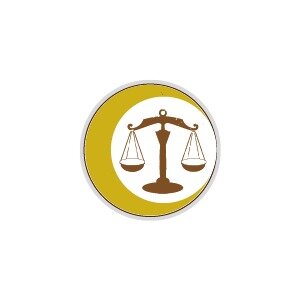Best Restructuring & Insolvency Lawyers in Kumasi
Share your needs with us, get contacted by law firms.
Free. Takes 2 min.
List of the best lawyers in Kumasi, Ghana
About Restructuring & Insolvency Law in Kumasi, Ghana
Restructuring and insolvency laws in Kumasi, Ghana fall under the broader legal framework that manages financial distress and business recovery within the country. These laws are designed to help businesses and individuals facing financial difficulties restructure their obligations or, where necessary, proceed through formal insolvency processes. The primary goal is to provide timely and effective solutions that enable debtors to reorganize, preserve jobs, protect creditors' interests, and promote economic stability within the local business community in Kumasi.
Restructuring involves reorganizing a business’s finances, operations, or legal structure to restore profitability, often allowing the business to continue trading. Insolvency refers to the state where an individual or company is unable to meet their financial obligations as they come due, leading to formal proceedings that may result in liquidation or an alternative settlement arrangement.
Why You May Need a Lawyer
Legal support is crucial when faced with restructuring or insolvency issues. Here are some situations where you may require the assistance of a lawyer in Kumasi:
- If your business is struggling to pay its debts and you need advice on possible restructuring options to avoid insolvency.
- If you are a creditor seeking to recover amounts owed from an insolvent debtor.
- If you have received a demand letter, writ, or any court notification relating to unpaid debts or bankruptcy proceedings.
- If you wish to negotiate payment plans, debt settlement, or voluntary agreements with creditors.
- If you are considering liquidation or administration and need to understand the implications and procedures.
- If you require guidance on your rights and responsibilities as a company director or shareholder during financial difficulties.
- If you need to challenge or defend against insolvency proceedings or statutory demands.
Lawyers offer strategic advice, prepare required documents, represent your interests in court or negotiations, and ensure compliance with applicable laws throughout the process.
Local Laws Overview
Ghana’s restructuring and insolvency framework is mainly governed by the Corporate Insolvency and Restructuring Act, 2020 (Act 1015). This law introduced modern procedures for handling corporate insolvency and business recovery and applies throughout Ghana, including Kumasi.
Key legal concepts and procedures under this Act include:
- Company administration as an alternative to liquidation - allowing businesses in distress to be managed by an appointed administrator who restructures the company to improve its financial situation.
- Creditor arrangements and compromise agreements - enabling debtors and creditors to reach mutually agreeable payment plans without resorting to liquidating the business.
- Liquidation - formal court-supervised process where the company’s assets are sold and proceeds distributed to creditors.
- The role of the official receiver and court - court involvement is necessary at several stages, including validating insolvency petitions and appointing administrators or liquidators.
- Protection of directors and company officers who act responsibly during insolvency, and sanctions for misconduct.
- Provisions for individual insolvency (bankruptcy) for non-corporate persons facing financial distress, under separate legal rules.
All restructuring and insolvency procedures must comply with Ghana’s laws, and the process can be complex. Consulting knowledgeable local lawyers is strongly recommended.
Frequently Asked Questions
What is the difference between restructuring and insolvency?
Restructuring is a process that involves reorganizing a distressed business’s debts, operations, or legal structure with the aim of financial recovery. Insolvency, on the other hand, is when a business or individual can no longer pay their debts as they fall due and may face asset liquidation or bankruptcy proceedings as a result.
Are insolvency laws in Kumasi different from those in other parts of Ghana?
Insolvency laws are the same throughout Ghana, including Kumasi, as they are governed by national legislation - mainly the Corporate Insolvency and Restructuring Act, 2020 (Act 1015). However, the application and processes may vary slightly in local courts.
Can a business trade during insolvency proceedings?
In some cases, a business may continue to operate under the supervision of an appointed administrator during insolvency proceedings, especially if there is a possibility of restructuring and recovery. A lawyer can clarify the specific options available for your situation.
What happens to employees if a company becomes insolvent?
Employees' rights are generally protected by law during insolvency. Wages and other entitlements may be paid out as a priority from the liquidation proceeds, but the actual outcome depends on asset availability and the specific insolvency process being followed.
What is liquidation?
Liquidation is a legal process where a company’s assets are sold, and the proceeds are used to pay creditors in a specific order of priority. Once all asset distributions are complete, the company is formally dissolved.
Who can initiate insolvency proceedings in Kumasi?
Insolvency proceedings can be initiated by the debtor company, creditors, shareholders, or, in some circumstances, by regulators or government agencies.
Do you always have to go to court for restructuring or insolvency?
Not always. Out-of-court arrangements, settlements, or negotiations between debtors and creditors are possible. However, court approval is required for formal insolvency processes such as administration or liquidation.
What role does the Official Receiver play?
The Official Receiver is a government-appointed official who may be responsible for managing the insolvency process, particularly in cases where no private insolvency practitioner is appointed. They help protect the rights of creditors, debtors, and other stakeholders throughout the process.
How long does an insolvency process take?
The duration depends on the complexity of the case and the chosen process (restructuring, administration, or liquidation). Some cases can be resolved in a few months, while others may take a year or more.
Can individuals declare bankruptcy in Kumasi?
Yes, individuals facing persistent and unmanageable debts may seek bankruptcy under Ghanaian law, which is handled through separate judicial procedures from corporate insolvency.
Additional Resources
If you need further information or official guidance, the following organizations and resources may be helpful:
- Registrar-General’s Department: Handles business registration and maintains records, including information about insolvency filings.
- Official Receiver’s Office: Oversees elements of the insolvency process, particularly where no private insolvency practitioner is involved.
- Ghana Bar Association - Ashanti Region: Offers a directory of experienced lawyers in restructuring and insolvency matters.
- Court Services in Kumasi: The High Court (Commercial Division) handles insolvency applications and disputes.
- Business Advisory Centres: Provide support and information to small and medium enterprises facing financial distress.
Next Steps
If you need legal assistance with restructuring or insolvency in Kumasi, it is important to act quickly to maximize available options. Here are some steps to follow:
- Gather all relevant financial records and any legal communications you have received.
- Identify your main concerns and desired outcome (for example, debt repayment plans, company rescue, asset protection).
- Contact a qualified restructuring and insolvency lawyer familiar with Ghanaian law and the Kumasi legal landscape.
- Request an initial consultation to discuss your situation and possible options.
- Follow the advice provided and be proactive in meeting all deadlines and legal requirements.
Navigating restructuring and insolvency can be complex, but with the right legal support, you can make informed decisions and work toward the best possible solution for your circumstances.
Lawzana helps you find the best lawyers and law firms in Kumasi through a curated and pre-screened list of qualified legal professionals. Our platform offers rankings and detailed profiles of attorneys and law firms, allowing you to compare based on practice areas, including Restructuring & Insolvency, experience, and client feedback.
Each profile includes a description of the firm's areas of practice, client reviews, team members and partners, year of establishment, spoken languages, office locations, contact information, social media presence, and any published articles or resources. Most firms on our platform speak English and are experienced in both local and international legal matters.
Get a quote from top-rated law firms in Kumasi, Ghana — quickly, securely, and without unnecessary hassle.
Disclaimer:
The information provided on this page is for general informational purposes only and does not constitute legal advice. While we strive to ensure the accuracy and relevance of the content, legal information may change over time, and interpretations of the law can vary. You should always consult with a qualified legal professional for advice specific to your situation.
We disclaim all liability for actions taken or not taken based on the content of this page. If you believe any information is incorrect or outdated, please contact us, and we will review and update it where appropriate.










